Welcome to an exclusive interview with Sophie Dakin, the visionary founder behind Ada Dakin, a sustainable clothing brand that is making waves in the heart of London. In this feature, we delve deep into Sophie’s inspiring journey, uncovering the passion and determination that led her to establish Ada Dakin, a brand committed to blending style with sustainability.
Join us as we explore the brand’s unique approach to slow fashion, its dedication to eco-friendly practices, and its mission to inspire a more conscious and environmentally responsible fashion industry. Sophie’s story is one of resilience, innovation, and a profound commitment to making a positive impact on the world of fashion.
So, let’s embark on this journey together and discover the sustainable magic woven into every Ada Dakin creation…
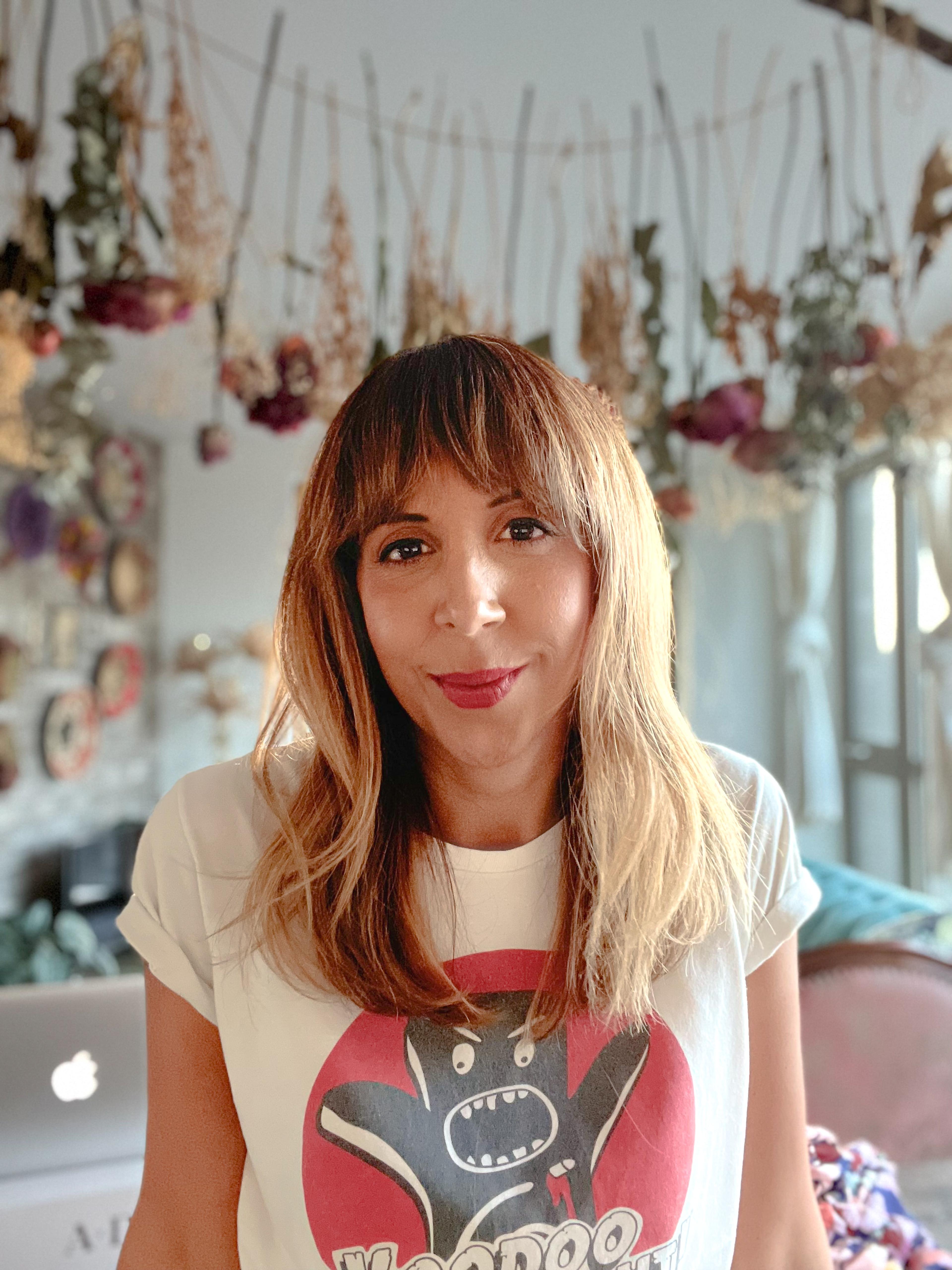
What inspired you to start Ada Dakin and create a sustainable clothing brand in the heart of London?
I’ve always had a passion for crafting my own sense of style by pairing thrifted discoveries with items from high-street and luxury brands. It has always been a dream of mine to start my own clothing brand, but I honestly never believed in myself…until now! Previously, my career revolved around textile sales, which involved flying internationally every month. Over time, I became increasingly disheartened with my substantial carbon footprint and also the considerable amount of wastage I would witness at every stage of the fashion supply chain. Over the years, I also observed the decline of numerous British factories and mills. All of these factors neatly converged to spark my desire to establish a UK-based brand that could both contribute to and reignite enthusiasm in the British garment production industry.
How did you come up with the idea of using recycled plastic bottles for fabric and trim in your clothing designs?
With a strong commitment to sustainability, I was determined to source the most eco-friendly fabric available. I discovered a UK printer that had recently begun offering ready-to-print Regenesis fabric, crafted from recycled plastic bottles. After conducting a series of color and print tests, I opted for their version of Light Satin, which mirrors the look and feel of traditional satin. It’s truly amazing!
I’m on a constant quest to continue evolving and learning as I aim to steer Ada Dakin toward a circular model. So, despite Regenesis fabric serving as a fabulous solution for recycling plastic bottles, it is not perfect due to its synthetic polyester composition and the microbeads it contains, which pollute our wastewater systems and environment. This season, I am thrilled to announce that the brand is transitioning to a new fabric called Ecovero, derived from wood grain pulp, harvested from sustainable forests, and, most importantly, biodegradable! I doubt that anyone will ever want to part with their Ada Dakin pieces(!), but if they do, they can take great delight in composting all our Ecovero garments!
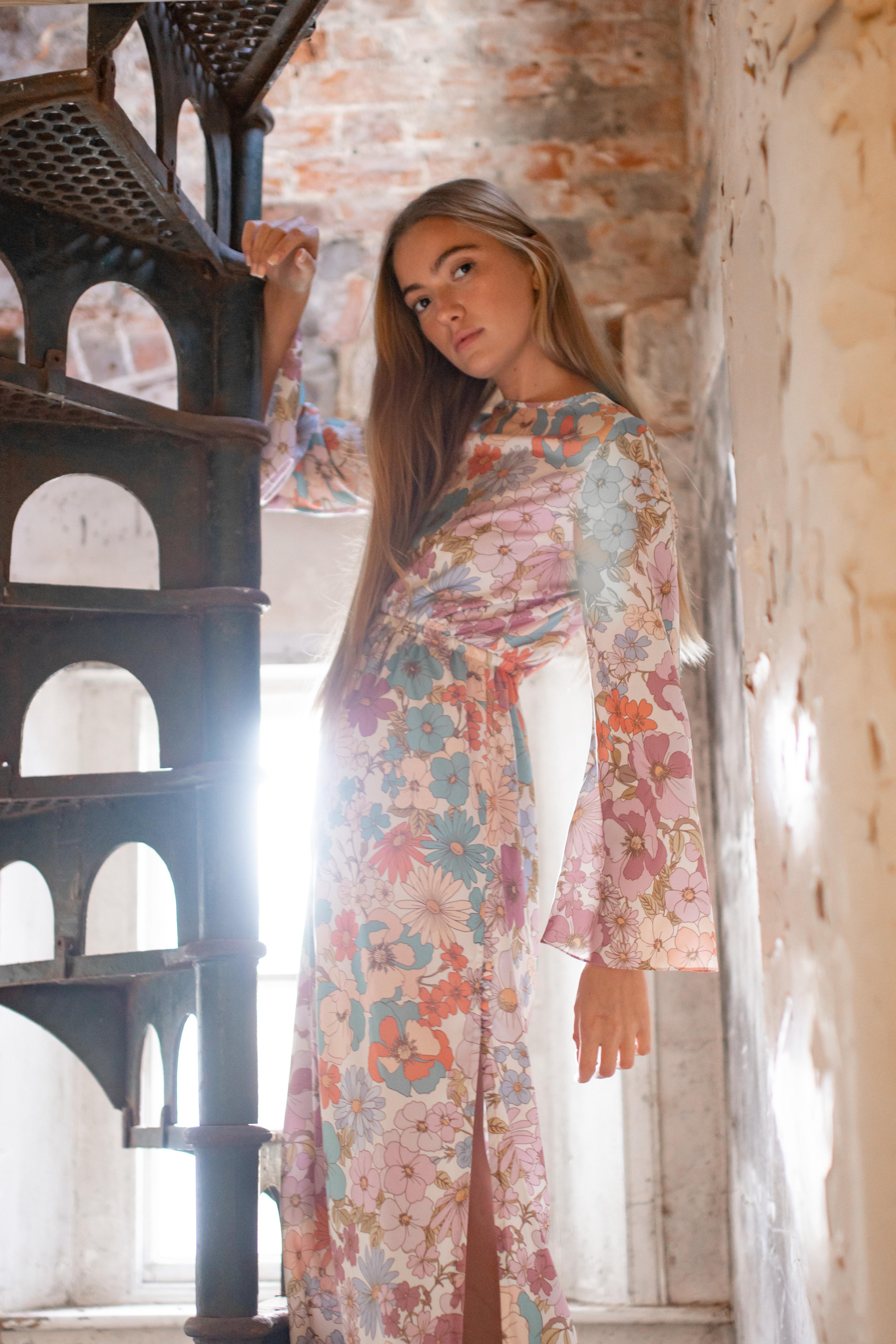
What challenges did you face when establishing Ada Dakin as a slow fashion brand, and how did you overcome them?
Our primary hurdle revolved around locating a UK-based manufacturer willing to collaborate with us on a made-to-order basis while adhering to the perfect pricing, timelines, and production quantities. Cue a boatload of cold-calling(!), with both myself and Peach the pooch personally visiting manufacturers armed with bags of samples, numerous color-coded Excel spreadsheets, and the most durable dog treats in existence! We initially partnered with a fantastic manufacturer, but their pricing was a little on the high side. So, undeterred, we got back on the road, and on our 14th meeting, we stumbled upon our current East London-based manufacturer, conveniently located a 10-minute bike ride from our home, and who we are now lucky to have the most amazing relationship with!
In the fashion industry, sustainability has become an essential focus. How do you ensure that Ada Dakin remains sustainable in every aspect of its operations?
In an industry where greenwashing is widespread, we are committed to setting ourselves apart by prioritizing transparency and accountability. We endeavor to maintain the highest levels of openness and responsibility and will be conducting comprehensive assessments of our practices on an annual basis. Our dedication to sustainability is enhanced by our participation as a signatory to the SME Climate Commitment, which, in collaboration with the UN Race to Zero Campaign, highlights our promise to halve our emissions before 2030 and reach net zero before 2050. As a further demonstration of our dedication, and after demonstrating a high level of performance throughout their rigorous assessment process, we have just been awarded an ESGmark® certification. This pledges our passion to support ongoing positive change for Environmental, Social, and Governance principles. Our next aspiration is to attain B Corp Status, aligning with our growth as a brand and further solidifying our commitment to ethical and sustainable business practices.
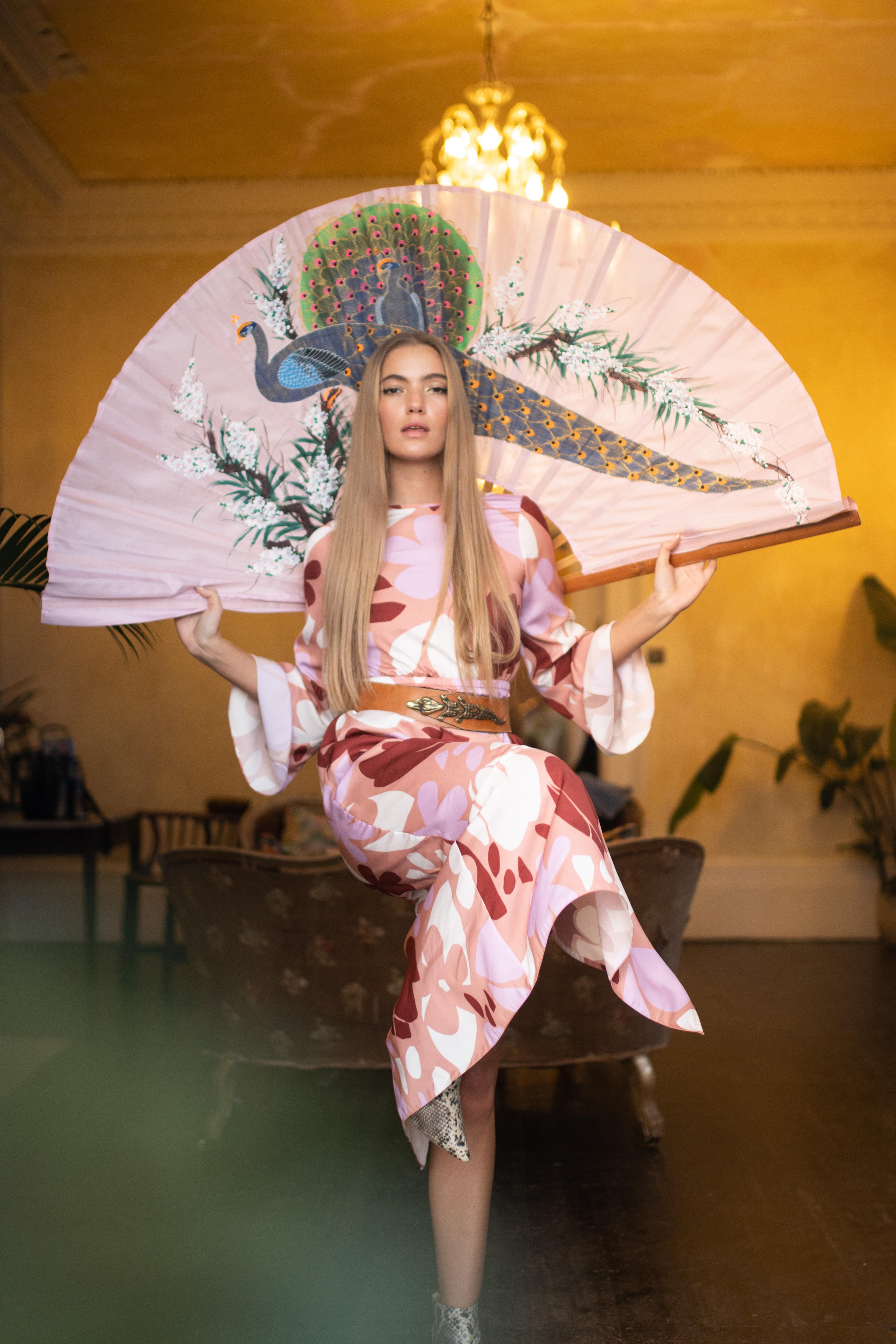
As a founder, how do you maintain the balance between creative design and sustainable practices in your clothing collections?
As the founder, and currently the sole employee of Ada Dakin, collaboration lies at the heart of our design process, with each collaborator bringing their own unique sustainability expertise to the table.
While Ada Dakin is a print-driven brand, we aspire to ensure that our designs resonate with both our customers and the planet by drawing inspiration from nature.
The creative journey begins with curated inspirational imagery, which I often find in my day-to-day life! This season, our designs embrace a mystical nature theme which I’ve titled ‘La Magica.’ My pattern ideas originated from entwined snakes seen in The Craft movie, the most beautiful glowing golden hour sunsets bathing my Hackney apartment, and a vintage celestial printed dress I stumbled upon in Spitalfields market. I then collaborate closely with talented textiles designers who work their magic to transform my concepts into stunning prints.
My dedication to collaboration continues with an amazing pattern-maker who is a true expert in her craft. I rely on her expertise to bring my garment visions to life while ensuring the creation of timeless styles that minimize fabric in our pattern pieces.
Environmental and social responsibility principles extend to our printers and London-based manufacturers. They adhere to stringent zero waste policies, use non-toxic certified chemicals, and provide us with signed declarations affirming their commitment to the International Labour Organization’s principles. The latter of which ensures ethical employment practices, which includes freely chosen employment, the absence of child or forced labor, safe and hygienic workplaces, and fair working hours and pay.
Through our active presence on social media, we aim to not only prove our intentions to our customers but also to educate them with environmental insights and promises of our ongoing sustainable initiatives.
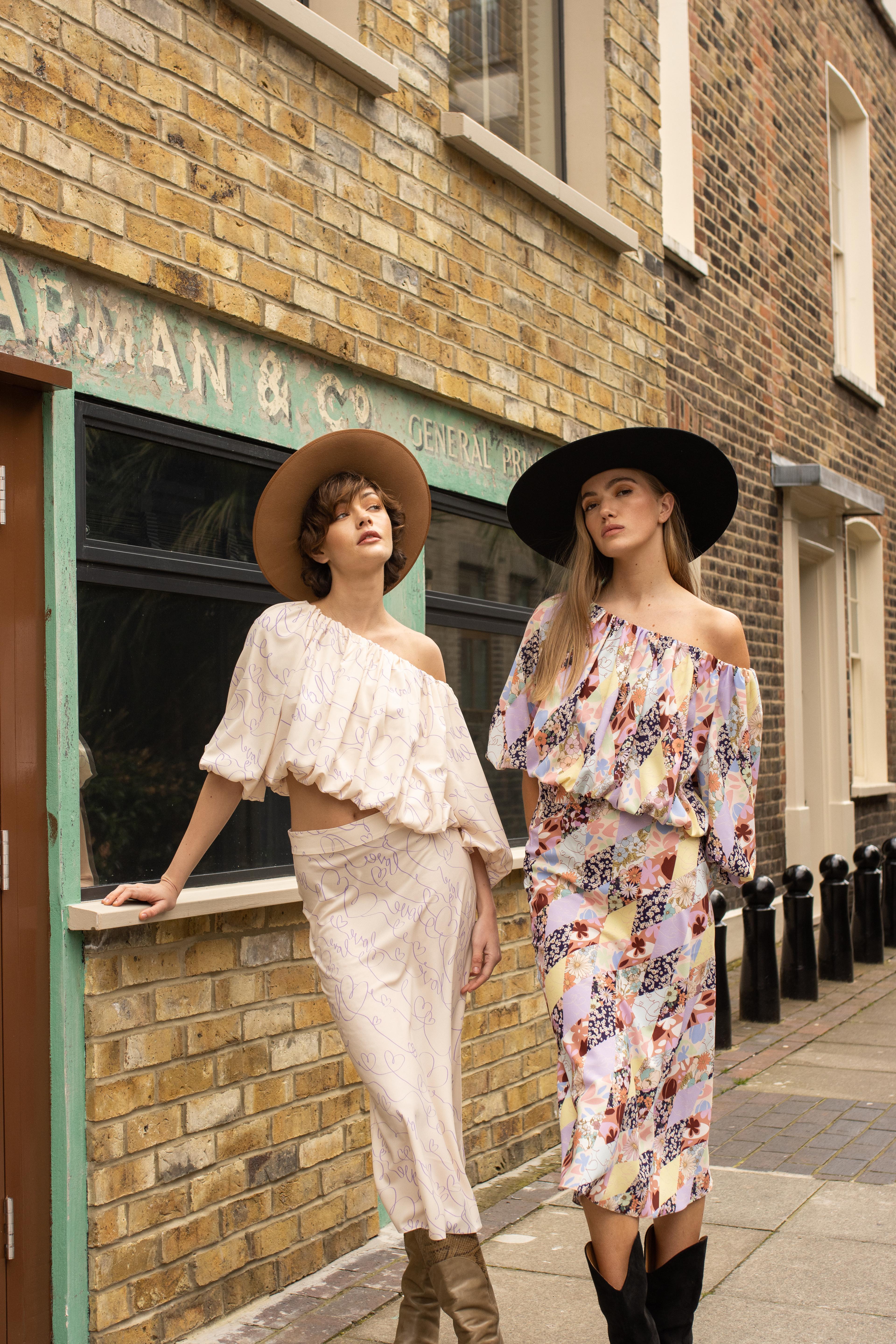
Ada Dakin is made-to-order, which is an unconventional approach in the fast-paced fashion industry. How do you see this method contributing to a better future for the industry?
Our aim is for Ada Dakin to be a beautifully considered counterpoint to the fast fashion industry! We believe in rekindling the sense of anticipation that comes with eagerly awaiting a cherished piece of clothing, so we actively encourage consumers to invest in pieces they will adore and treasure for years to come.
A made-to-order approach aims to revive the appreciation for patience in thoughtful purchasing decisions and to honor the craftsmanship and care that our artisans weave into every single creation! By producing garments only when they are requested, we minimize all carbon footprints associated with manufacturing and transportation and eliminate excessive inventory and the need for mass production.
As proud signatories to the UN’s net-zero initiative, where businesses pledge to reduce their carbon emissions, we firmly believe that slow fashion plays a pivotal role in reducing the disposable culture and nudging closer to being zero waste.
What advice would you give to other aspiring entrepreneurs who want to start a sustainable brand with a focus on slow fashion?
I have both personal and professional advice for those aspiring to launch a slow sustainable brand:
Personal – Believe in yourself and trust your instincts. Brush off any internal or external negative chatter…you don’t need a degree in fashion design, there’s always room for more brands, and don’t let anything hold you back. You’ve already accomplished the challenging part by conceiving the idea of creating a sustainable brand, now take that idea and propel it into action with unwavering passion, knowledge, and determination to succeed, no matter what. If you possess this inner strength and steadfast belief, then everything else will naturally align with your vision. Trust me on this!
Professional – Consider how your sustainable brand can offer the most effective solution to a specific problem. Start by defining your ideal customer in great detail, including their lifestyle, preferences, favorite restaurants, vacation spots, and even niche characteristics. For instance, my initial customer profile focused on a 27-32 year old female who enjoyed Aperol Spritz’s, wearing high-waisted jeans, a crop top, and a Lack of Color fedora at London’s most sought-after rooftop bar with her friends! Next, identify their clothing needs and spending habits, and assess the market to pinpoint where your brand can uniquely excel.
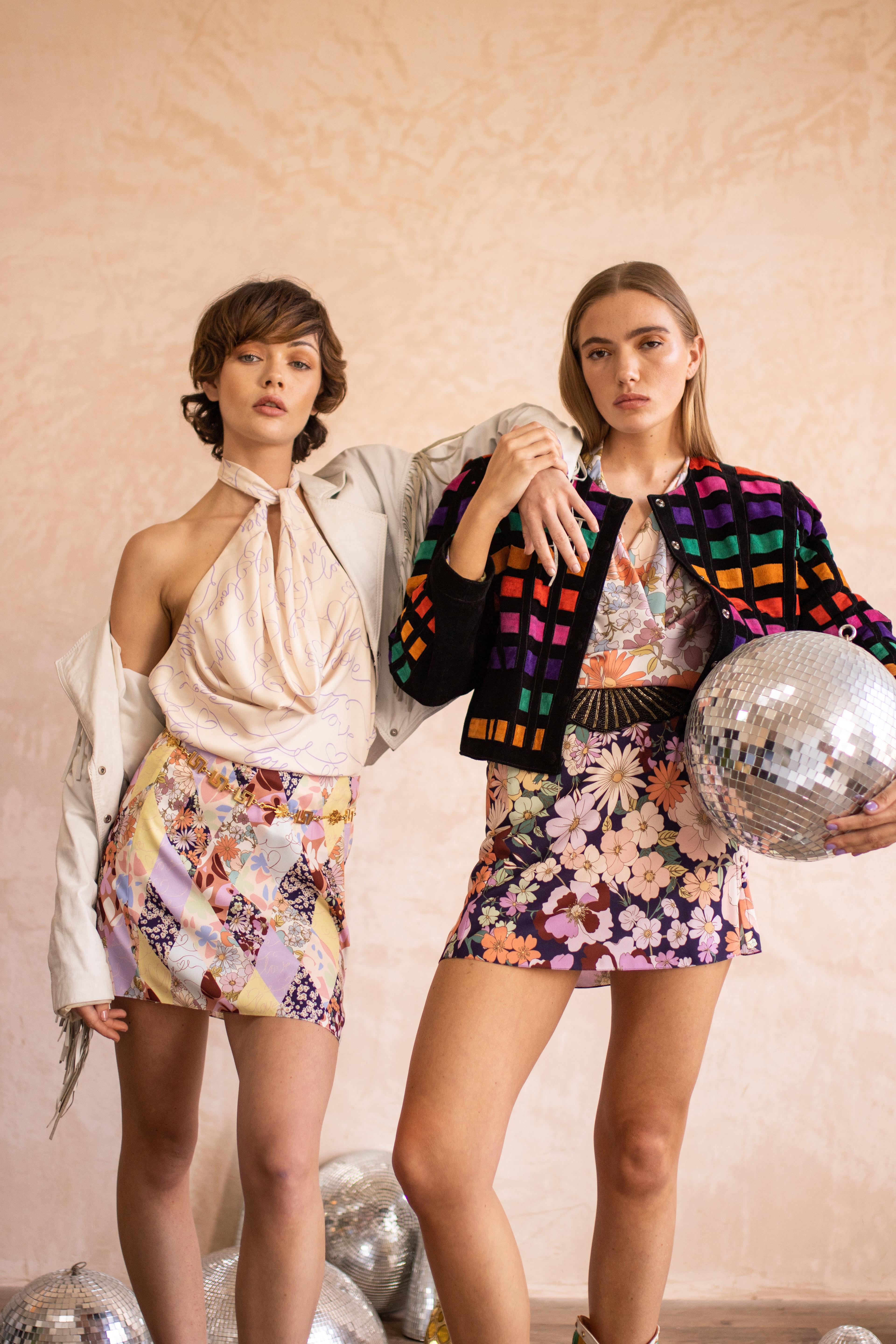
Collaboration is essential for creating a positive impact in the fashion industry. How do you partner with other brands or organizations that align with Ada Dakin’s mission?
We are passionate about forging meaningful partnerships with brands and organisations who share our core values to create a more environmentally conscious and socially responsible fashion industry. We prioritize transparency and accountability in our entire supply chain and work closely with suppliers and manufacturers who use materials and production methods that are climate-friendly. From a future stance, we are currently in conversations to partner with a natural and cruelty-free skincare brand and have also just begun talks to collaborate with a handbag brand, so watch this space!
The fashion industry can be notorious for its wastefulness. How do you educate and empower your customers to make more sustainable choices when it comes to fashion consumption?
The most eco-conscious fashion decision is to re-wear what you already own! And secondly, opt for second-hand purchases. I have always personally shopped at thrift stores and vintage boutiques and still do so. I regularly post on social media about my latest and most exciting thrifted discoveries. Additionally, I use our social media voice as a platform to spotlight environmental concerns and provide guidance to our followers on how to make better fashion choices for themselves and the planet, such as a recent tip on how to donate clothing to charity without the need to leave your home, as many charities now offer free postal bags or home pick-ups, ensuring that you can contribute to a worthy cause with ease.
Have you faced any criticism or skepticism regarding the viability of running a slow fashion brand with a strong sustainability focus? How do you respond to such challenges?
In a world where we have grown accustomed to next-day order deliveries from giants like Amazon or Zara, it is only natural to face criticism questioning the length of time in which consumers will be prepared to wait for their cherished Ada Dakin pieces. Our indicated delivery timeframe on our online store is 4 weeks, however, we frequently fulfill orders much faster, typically within 2 weeks. While most customers understand and appreciate this, there have been a few inquiries from individuals seeking their items immediately.
I strongly believe that the principles of slow fashion and sustainability are integral to the future of the fashion industry, and by openly sharing insights into our supply chain and production processes and by educating our audience about the advantages for both consumers and the environment, we aim to raise awareness about the detrimental effects of fast fashion and shift individual purchasing habits to value thoughtful choices rather than instant gratification.
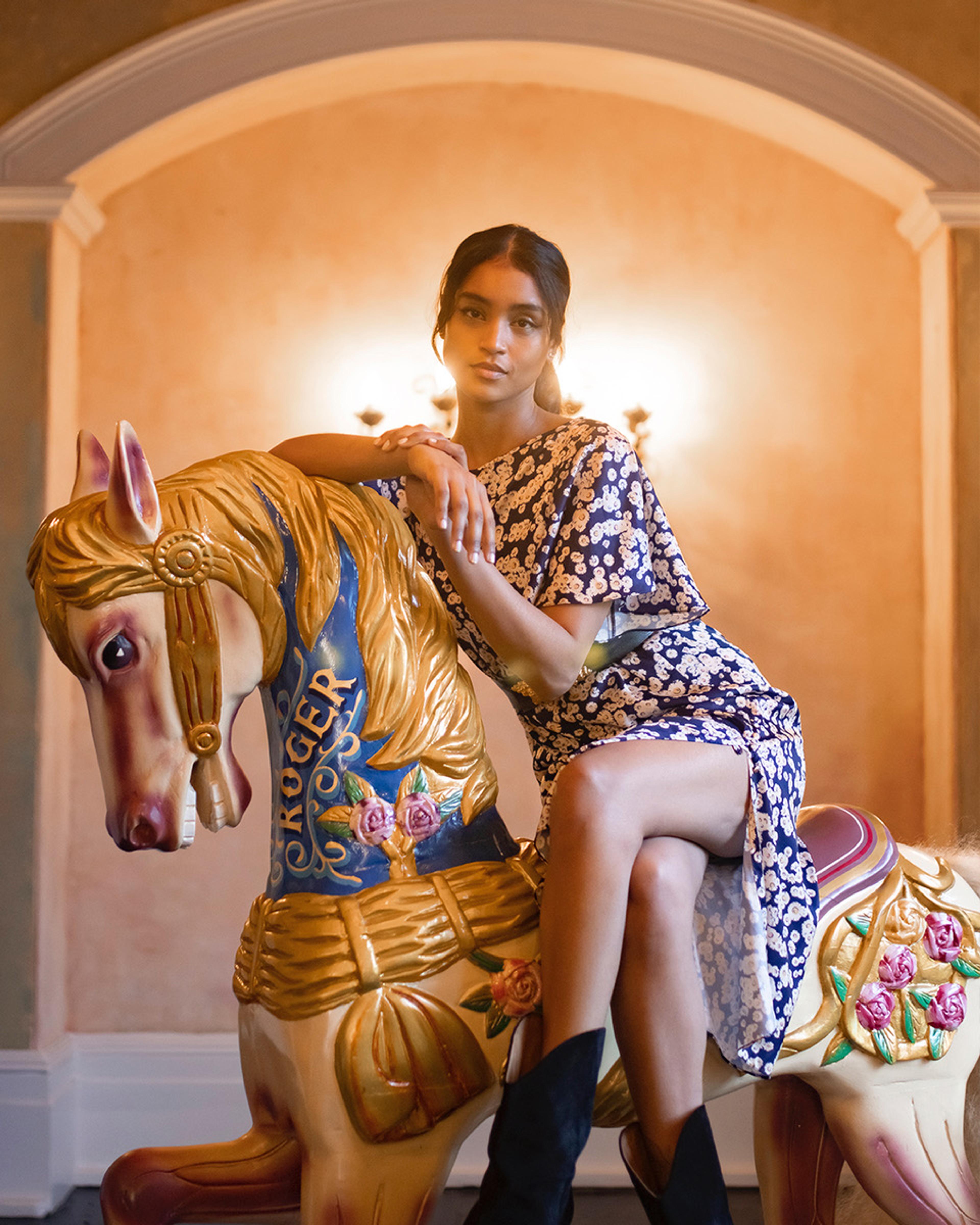
What are some future plans or initiatives for Ada Dakin that will further amplify the brand’s positive impact on the environment and society?
Our immediate plans are to get our hands dirty! We’re hoping to devote some of our time to working with a reforesting organization so that we can both physically and financially give back to the planet. We also want to strive for B Corp status within the next few years so we need to ensure that we remain true to ourselves (and you!) and our long-term goals by constantly researching new technology, fabrics, and organizations who we can pair with along the way. We’re only just getting started so we’re very excited about what the future holds!
Running a sustainable brand involves a commitment to continuous improvement. How do you stay updated on the latest sustainable practices and incorporate them into your business model?
To ensure our continued growth and learning, we maintain what we affectionately refer to as our ‘Little Green Book,’ comprising a curated selection of environmental, charity, and sustainability blogs, most noticeably earth.org and earth911.com, which we delve into on at least a weekly basis. These enable us to stay up to date with the latest climate, green technology, fabric, and fashion practices. Anything we see and love, which we’re not doing, we pledge to strive to undertake!
Our carefully considered strategic partnership and certification with ESGmark® takes a deeply personal approach and will ensure that we are permanently held accountable to improve on our pledges and remain at the forefront of all new sustainability developments.
Ada Dakin has gained recognition through partnerships with renowned retailers. How do you see the brand’s growth and expansion impacting the slow fashion movement on a broader scale?
Exposure on our chosen retailers’ online sites has given us the opportunity to reach a much wider audience, generating awareness and educating consumers about the importance of slow fashion. This will, in turn, hopefully inspire a shift in consumer behaviors to more considered purchases of great quality investment pieces rather than impulse shopping for fast fashion, and also inspire other brands to adopt similar practices.
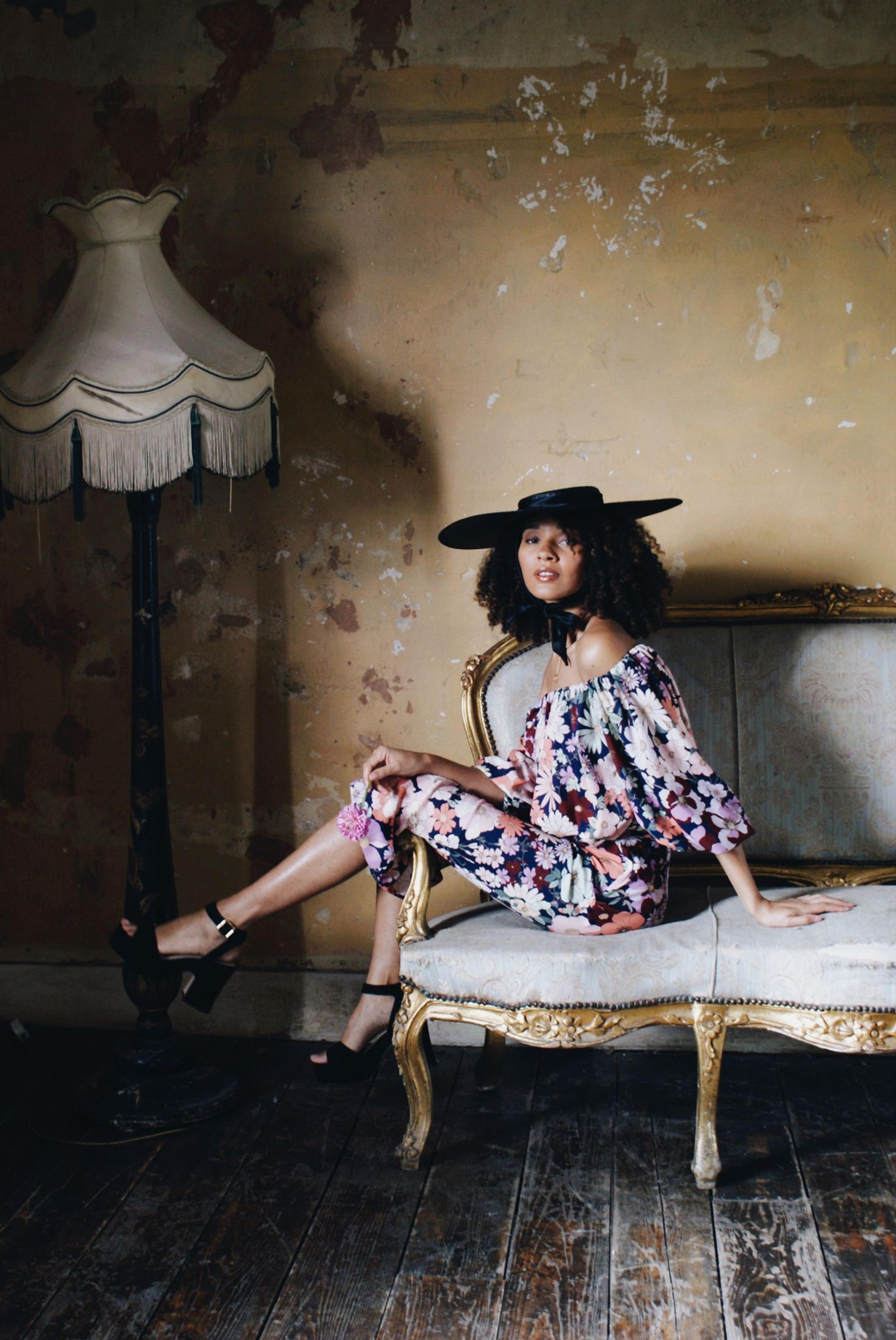
Our readers love to travel, what destination is at the top of your bucket list?
I love the California desert with Joshua Tree, CA being my favorite place in the world to visit. However, I regularly fantasize about staying at Amangiri, Utah to hike to Horseshoe Bend, Lake Powell, and Bryce Canyon. I also don’t feel like I’ve explored enough of the UK so I’d love to rent a campervan and go on a dog-friendly road trip around Devon and Cornwall for a few weeks. Peachy would love the Bodmin Jail Hotel, and if she behaves badly, I could always leave her there (joke!)
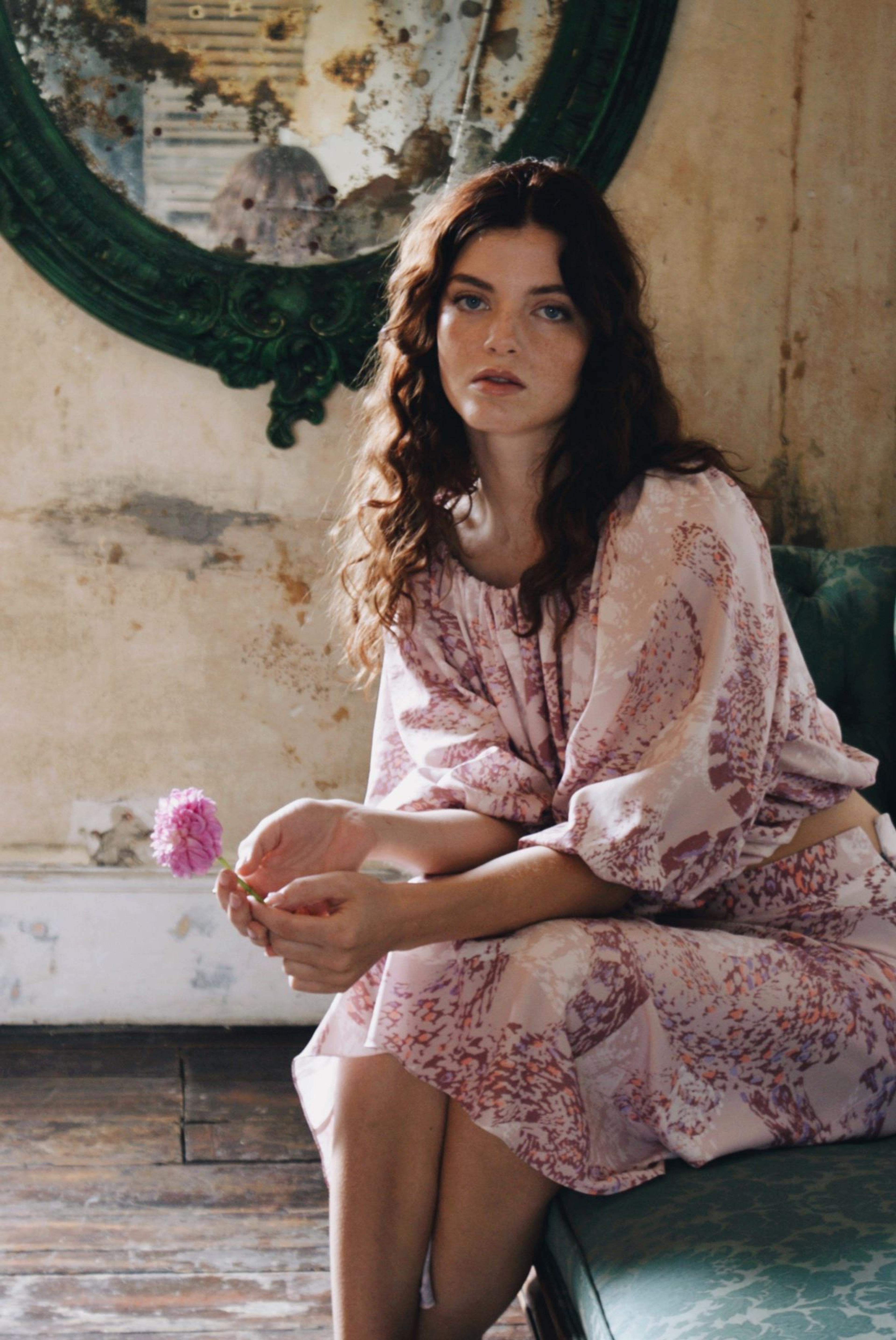
Where can people find out more?
Ooh, we’re easy to get hold of, follow us on the following channels:
Instagram & Tiktok – @adadakin_
Facebook – Ada Dakin
Pinterest – @adadakin
Website & store: adadakin.com.

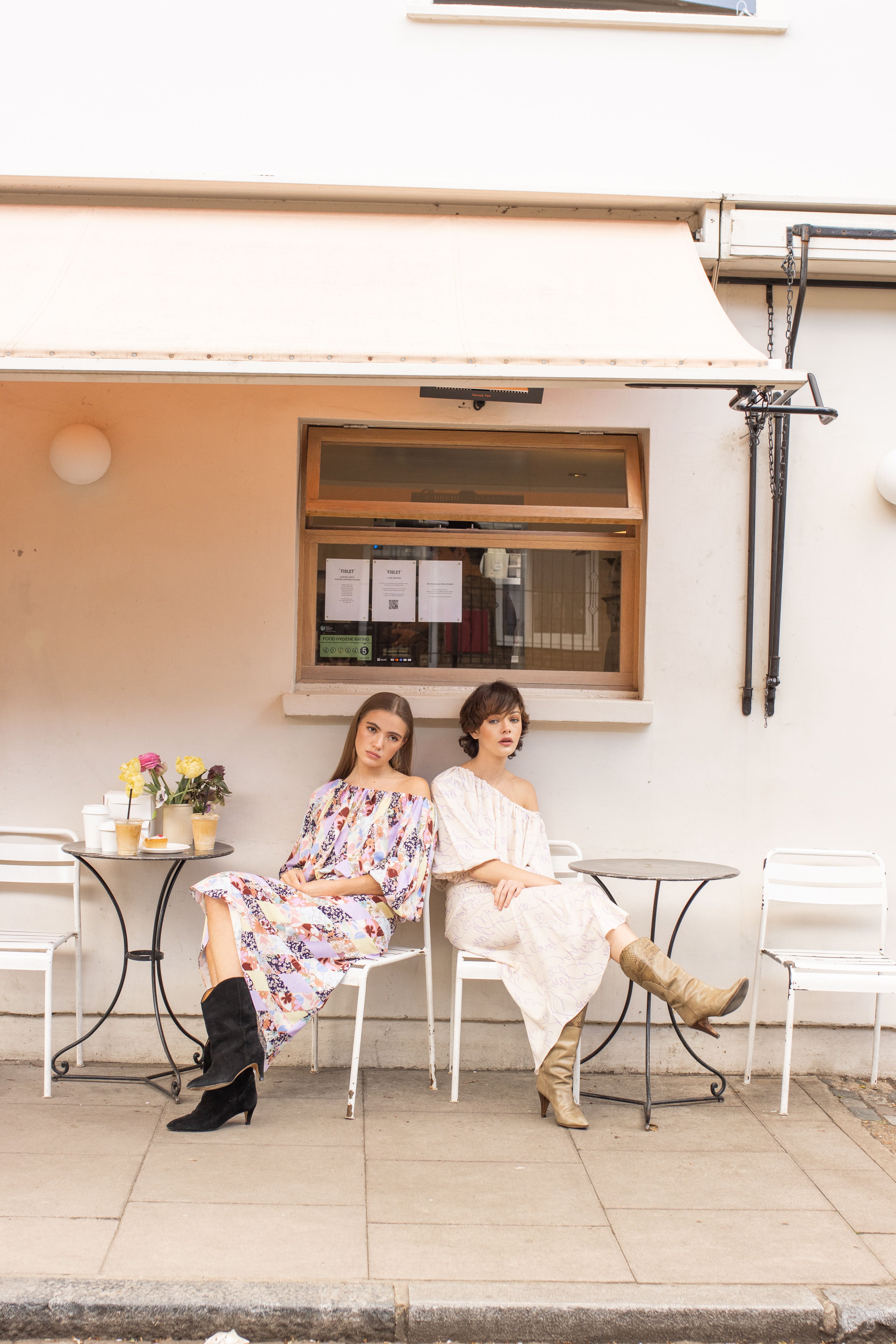
Comments are closed.